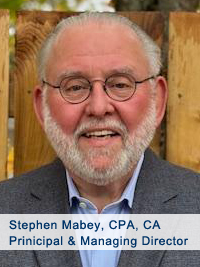In The Tipping Point, Malcolm Gladwell speculates, "When people are overwhelmed with information and develop immunity to traditional forms of communications, they turn instead, for advice and information, to the people in their lives whom they know, respect, admire and trust."
How do you identify and communicate with those individuals whose opinion is valued, and who make recommendations and are known, respected, admired and trusted?
If You Do Good Work...
Law firms have accepted, relied on, and based their marketing strategy on the mantra: "If you do good work, the work will come." Firm owners rely on word of mouth.
Unfortunately the mantra is not complete. It takes more than doing good work for a prospective client to hear about you. It takes clients who tell others about you. There is plenty of research and hard-won experience to confirm that you can have the most extremely satisfied clients in the world, and they don't tell a soul about you. The challenge is getting clients to talk about you.
What Can Be Done?
What can be done about the growing immunity to mass media and the unpredictable word of mouth that are inhibiting your ability to attract new clients?
Focus on identifying clients who will help spread your message, and who are receptive to information and marketing messages about you and your firm. These individuals make recommendations to others and are asked for their recommendations. They are opinion leaders. Focus your personal and media marketing efforts on them.
Are we suggesting that you blow off the rest of your clients? Of course not, but you only have so much time and resources to devote to marketing. We are suggesting a way to dramatically increase the effectiveness of the use of your time and resources.
Groom Opinion Leaders
Social scientists and market researchers have been studying opinion leaders for more than three decades. Unlike the general population, opinion leaders are receptive to marketing communications and are actively engaged in seeking out information about their areas of interest. They express their opinions to others and are asked for their opinions by others. Marketing messages directed at these individuals will definitely be seen, heard and/or read.
Unfortunately, it is not easy to predict who, in the general population, will be a legal services opinion leader. But you can identify those individuals within your client base who are opinion leaders. In addition to identifying these individuals, you can identify the communication channels that hold high concentrations of these individuals. Once you have this information, you can start to build targeted marketing and communication strategies.
Five-Step Action Plan
-
Mine your client base to identify opinion leaders. Do a survey of all clients in order to identify the opinion leaders. The survey only needs to be seven to nine minutes over the phone. Ask the following set of questions to identify opinion leaders (along with other questions related to Step 3). The following questions use a five point scale:
In general, do you talk to your friends and colleagues about legal services and lawyers (very often-never)?
-
When you talk to your friends and colleagues about legal services and lawyers do you: (give a great deal of information--give very little information)?
-
During the past six months, how many people have you told about legal services and lawyers (told a number of people--told no one)?
-
Compared with your circle of friends and colleagues, how likely are you to be asked about legal services and lawyers (very likely to be asked-not at all likely to be asked)?
-
In a discussion of legal services and lawyers would you be most likely to: (listen to the ideas of your friends or colleagues-convince your friends or colleagues of your ideas)?
-
Overall, in all of your discussions with friends and colleagues are you: (often used as a source of advice not used as a source of advice)?
Remember, when assessing the data influence is a matter of degree and should properly be viewed as a continuous variable, rather than a dichotomy of "leaders" and "followers". Therefore a judgment call is needed to determine cut-off points for those to be considered as opinion leaders.
-
Start to identify new opinion leaders as soon as they become clients. Ask these questions of every new client--not just every new company-because opinion leadership traits are personal, individual character traits and behaviours, not company behaviours.
-
Identify communication pathways and hubs used by opinion leaders. Communication pathways are the means by which social groups (hubs) network. The hubs are where individuals 'hang out", who they talk to, their convention attendance, business and civic group attendance (note: attendance, not membership), etc. If you can identify the means by which these groups communicate, then you will be more effective in targeting the communication channels through which you deliver your marketing messages. The purpose behind this step is to help target your general marketing communications at media/channels with higher opinion-- leader membership. It is not foolproof, but it does increase the likelihood of successfully reaching opinion leaders.
-
Build opinion leader traps. Create mechanisms far identifying and capturing information about areas of interest of your opinion leader clients. This information can then be used to more directly and accurately hold conversations with opinion leaders and to continue improvements in marketing communications strategies. Building and utilizing opinion leader traps should become an important and ongoing part of identifying and updating your opinion leader resource base and building your practice. An example of this type of mechanism is a tear-off return postcard on a client mailing that allows the reader to ask for additional information on a service or ask for a white paper that your firm has produced. It is very important to track this data so you will be able to send further communications related to the issue, or invite the person (along with someone they wish to invite) to attend a talk or reception.
-
Create marketing programmes tailored toward opinion leaders. These are the individuals on whom you should focus your time, messages, resources and attention. Enlist them in your search for new clients. Educate them continuously. They want to be "in the know". They tend to be early adopters of new ideas. If you have a new practice group or service, go see them with the new practice group. Bring these influencers up to speed on what you are doing.
In the past, simple word of mouth marketing was a primary marketing strategy in the legal profession. In the last decade or so this approach has been replaced by marketing strategies focused on spending increasing amounts on mass media.
Today, neither strategy is working especially well. We suggest that law firms would be better served by focusing on two issues:
the identification, care and feeding of opinion leaders within their client base; and
the identification of social and business word of mouth communication networks and connections that exist within their marketplace.
If law firm managers address these two issues successfully, law firms will increase the effectiveness and efficiency of their marketing communications and their individual lawyer's marketing activities.
Don't underestimate the importance of helping lawyers increase their marketing effectiveness. By focusing on opinion leaders, lawyers can concentrate on those clients with the highest likelihood of helping them build their practices. Few lawyers like making sales calls, so anything that can be done to improve the effectiveness of each call will pay substantial long-term dividends.
A Final Note
There is significant research showing that someone who received a personal recommendation is substantially more likely to buy the recommended product or service, to buy sooner and to pass on the recommendation to others. The result is that, instead of a two-step process-"I find out information and pass it on to you" -- it is more likely a multi-step influencing process. This of course, makes your marketing programmes even more effective.


